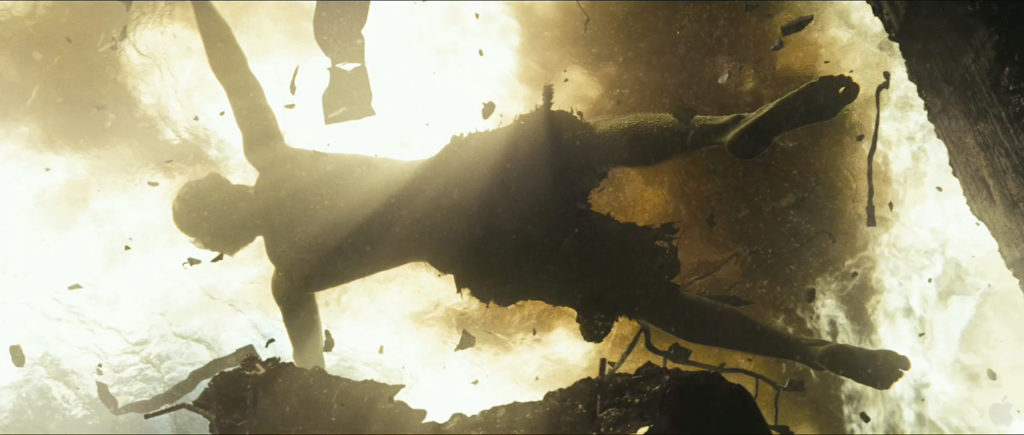‘Man Of Steel’ Borrows From Bible
Just in case you ever suspect it silly for Biblical Christians to tag a “secular” pop-culture thing …
 Like, say, the forthcoming superhero film Man of Steel …
Like, say, the forthcoming superhero film Man of Steel …
About which Christians may say things like …
Deep down, this is a story with Christian roots. If it weren’t for the real Christ, this story wouldn’t exist.
… If you think this is silly, or gauche, or at least unnecessary — you might think, It’s not like the writers are intentionally honoring Jesus, these things just happen, and this might be true — well, then consider this from Man of Steel scriptwriter David Goyer. (If you enjoyed The Dark Knight trilogy, you already know his work.)
Q: What outside influences are there outside of the comic book world?
Goyer: On this [film]?Q: Yeah.
Goyer: The biggest ones were the Old Testament and the New Testament. I mean, serious. It’s an Old Testament and New Testament story. I mean, there’s obviously echoes of the Moses myth and there’s echoes of Christ’s story. I mean, I would say those are the biggest ones.1
One who enjoys Superman: The Movie or Superman II with Christopher Reeve, or the attempted 2006 tribute/reboot Superman Returns, can’t help but notice the overt Christ-symbolism in them also.
What do you think? Too much symbolism? Too trite? Just about right?
My final thought: when non-Christians constantly and clearly insert such Savior-symbolism in stories, Christians would be fools to think their stories need to be too cool for overt references to Christ. Either this is exactly what people want anyway, or else our stories should point to the Light whose reflections people keep seeing in pop culture.
- From the Set of Man of Steel – David Goyer Interview, SuperheroHype, May 30. ↩







































It’s not at all silly. I never give author intent very much weight, anyways. But even for those who may disapprove of analyzing works written from a deliberately anti-Christian worldview for positive Christian themes, there seems to be enough reason to point out the Christian elements of this story. After all, the creators of this movie confessed that the story ultimately came from the Bible, and even if their purposes weren’t deliberately Christian, it does not at all follow that their intent must have been to subvert the Bible. (I have not seen Man of Steel.)
I haven’t seen it either; no one has except the cast and (we surely hope) the crew.
Regarding the “it’s not silly” charge: it’s counter to a perspective I’ve seen more often, that if Christians enjoy, or write, works of fiction that includes direct mentions of or appeals to Christ, they’re somehow Not Ambiguous or Not Artful. Versus this view I cry “bogus.” Pagans reference Him all the time and aren’t so condemned for being unhip — and in this case, the screenwriter is directly aware of the connections.
Yes, I should have taken a moment to look it up before revealing how oblivious I am. This site is one of the main ways I find out about movies, so I’m liking the News column.
I would say that it may run counter to culture to an extent, but it is true to the character. In all incarnations, whether they were the ones that were the most faithful to the original roots, or the grimdark crap in the “dark age” of comics, the character of Superman was compared to two Biblical persons, Moses and Jesus Christ.
This was obvious in the earliest comics, up to the MANY crucified hero shots of the character throughout history and incarnation, and other areas, such as the Maron Brando recording taken and used in Superman Returns and the Kents’ pastor in the New 52 reboot telling them that God isn’t punishing them with an inability to have kids, but may have a special mission for their eventual son, comparing him explicitly to Moses.
One case where writers admitted what they aimed for was even in the Death and Return of Superman arc in the early ’90’s, where Superman fought and died saving the world from the villain called Doomsday, then he “rose” again eventually. Oh, and while dead, he fought a demon in Hell before coming back fully to life. When you think of it, it’s kinda obvious.
I am a bit ambivalent about this film, though. ON the one hand, early audiences have stated that the film is not nearly as dark as it appeared to be from commercials, and yet one of the people in charge of it stated that he likes to see less of the “boy scout” and more of Superman “kicking butt”. I’m a tad nervous of whether this means they want away from the comic roots here.